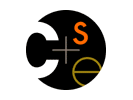
|

CSE 326: Data Structures, Summer 2003 |
|
 CSE Home CSE Home |
 About Us About Us |
 Search Search |
 Contact Info Contact Info |
|
There will be weekly assignments, either written or programming.
Expect about 7 assignments total.
All programming assignments must be written in Java. If this causes you undue hardship, please contact the instructor. Late policy:
Course Labs: Sieg 232 and Sieg 329. Labs have NT machines with X servers to access Unix. All projects will be graded on Unix. You may use tools such as J++ on other OSs but make sure you test under Unix.
Your grade will be determined as follows (approximate):
If you find an error in our grading, please bring it to our attention within one week of that item being returned. Grading guidelines for programming assignmentsSee also the "Programming Guidelines" at left. Approximate grade breakdown:
The reason why "so few" points are allocated towards program correctness and error-free compilation is because students who have gotten past 143 are smart enough to know how to get their code to compile and run against the general input (although testing "boundary conditions" is a skill which students should aim for), so program correctness and error-free compilation is neither a fair nor discriminating measurement of project quality. The two biggest discriminating factors among 326 students are program design (such as style and architecture) and analysis (the README/writeup), which is why these factors are weighed a little heavily. Also, 326 is a course about data structures and the tradeoffs made during algorithm/data structure design, so putting additional weight on program design, and questions about program analysis and weighing tradeoffs is more in keeping with the course goals. Putting weight on the design and writeup aspects for projects is also useful because it doesn't penalize students who "have the right idea" but couldn't get their code to compile because of a last-minute code change. Point AllocationFor each of the above categories, we have the following point allocation:
|
|
Department of Computer Science & Engineering University of Washington Box 352350 Seattle, WA 98195-2350 (206) 543-1695 voice, (206) 543-2969 FAX [comments to cse326-staff@cs.washington.edu] | |